What is COP29 and how will Trump’s election affect the climate talks?
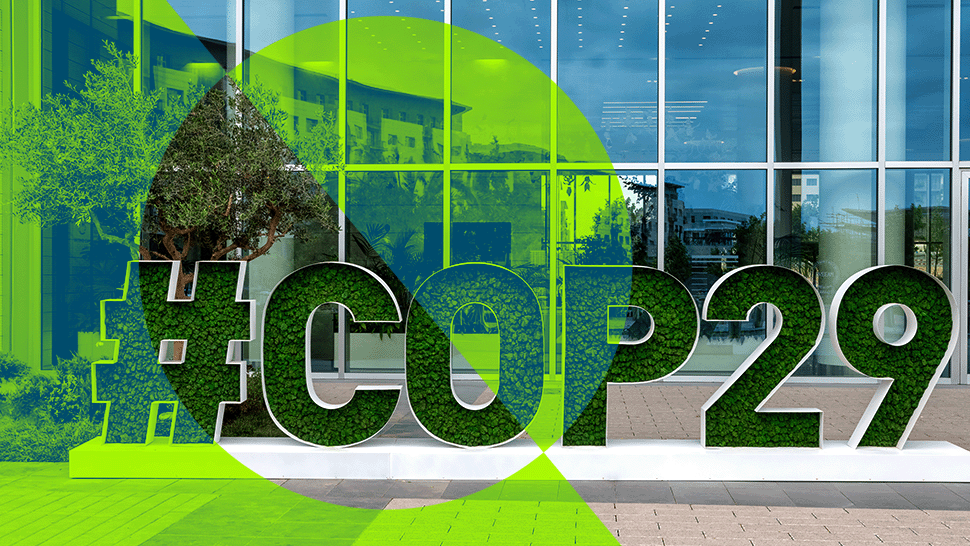
- Published
World leaders taking part in the latest annual UN climate meeting in Azerbaijan are hoping to agree action to help rein in rising global temperatures.
A key issue under discussion is how to get more cash to poorer countries, to help them curb their planet-warming gases, and to cope with the growing impacts of climate change.
The decision to hold the meeting in the Azerbaijani capital, Baku, has been criticised because of the country’s ties to gas and oil.
The US election victory of Donald Trump - a known climate sceptic - could also prove to be a distraction, and some important leaders are not attending.
What is COP29 and where is it taking place?
COP29 is the world's most important meeting on climate change.
It is led by the UN, and the 2024 event, the 29th such gathering, runs from 11-22 November.
It is being held in Baku, the capital of Azerbaijan, a central Asian country located between Russia and Iran.
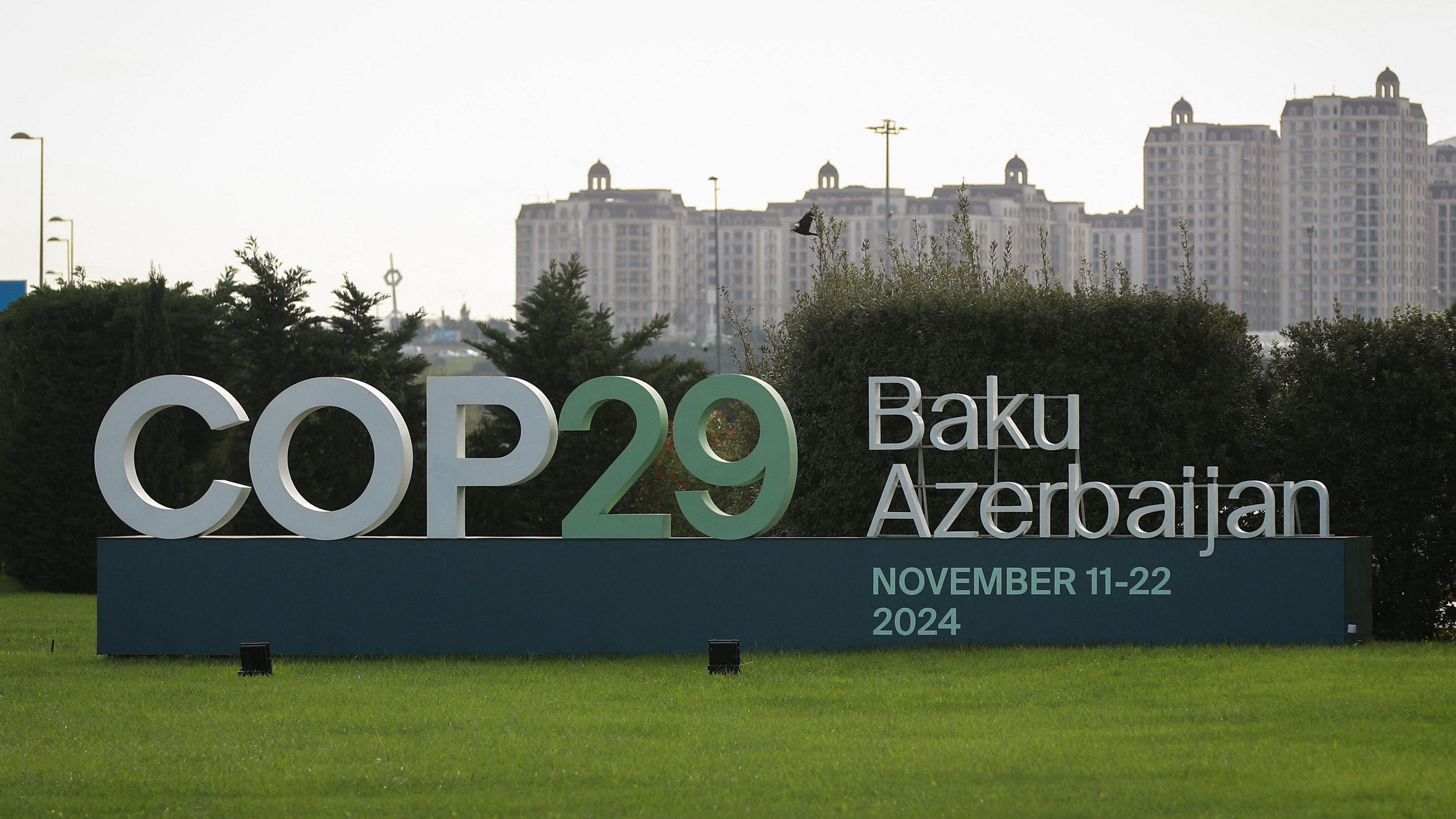
What does COP stand for?
COP stands for “Conference of the Parties”.
"Parties" refers to the countries that have ratified a treaty called the UNFCCC (United Nations Framework Convention on Climate Change).
That document was signed back in 1992, by almost 200 countries.
The COP is the decision-making body linked to that agreement, and representatives of these countries meet every year to negotiate the best approaches to tackling the root causes of climate change.
Who is going to COP29 - and who will miss it?
Between 40,000 and 50,000 delegates are expected to attend COP29. This includes representatives from all UN member states, and the EU. Diplomats, climate scientists, trade union leaders and environmental activists will also take part.
UK Prime Minister Sir Keir Starmer told the conference that he wants the UK to have more "ambitious" climate goals.
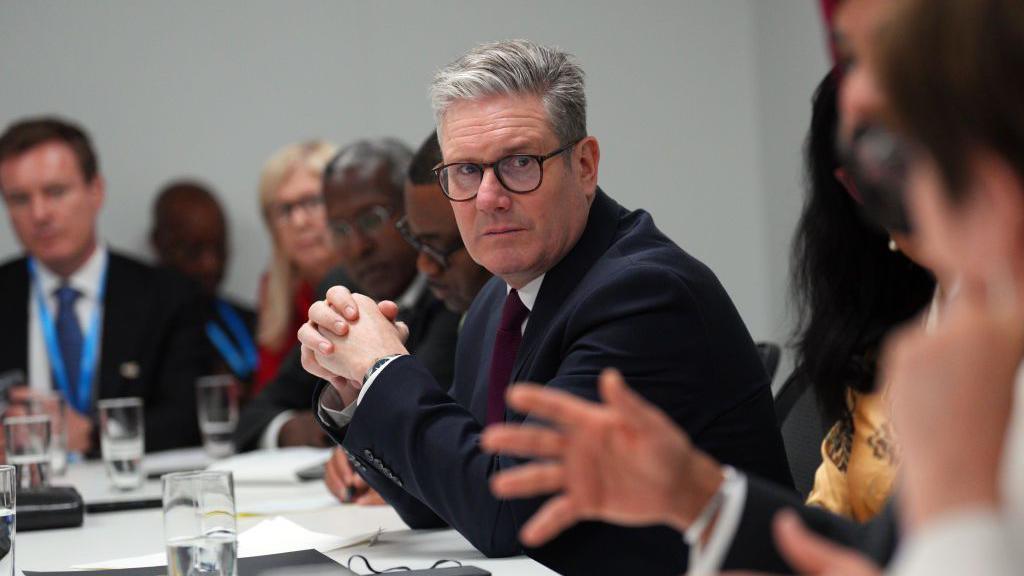
Other attendees include UN secretary general Antonio Guterres.
However the leaders of some of the largest economies - and biggest carbon emitters - are notably absent from COP29.
US President Joe Biden, China's Xi Jinping and France's Emmanuel Macron are not attending. European Commission President Ursula von der Leyen, Germany’s Olaf Schulz and India’s Narendra Modi will also not be there.
They are staying away for a range of reasons, but their absence could undermine the event's significance.
Leaders who do attend will also have lots of other issues on their minds, including two expensive and difficult wars in the Middle East and in Ukraine, and global financial problems.
"No world leader is arriving with climate change at the number one spot in their inbox," says Oxford University's Prof Thomas Hale.
There’s also an underlying feeling that Azerbaijan doesn’t have the diplomatic or financial clout to secure a significant agreement.
Many leaders think progress is more likely at COP30, which will be held in Brazil in November 2025.
During COP29 key experts, including former UN Secretary General Ban-Ki Moon and former UN climate chief Christiana Figueres, said the COP process is "no longer fit for purpose".
They said: "Its current structure simply cannot deliver the change at exponential speed and scale, which is essential to ensure a safe climate landing for humanity."
What will be discussed at COP29?
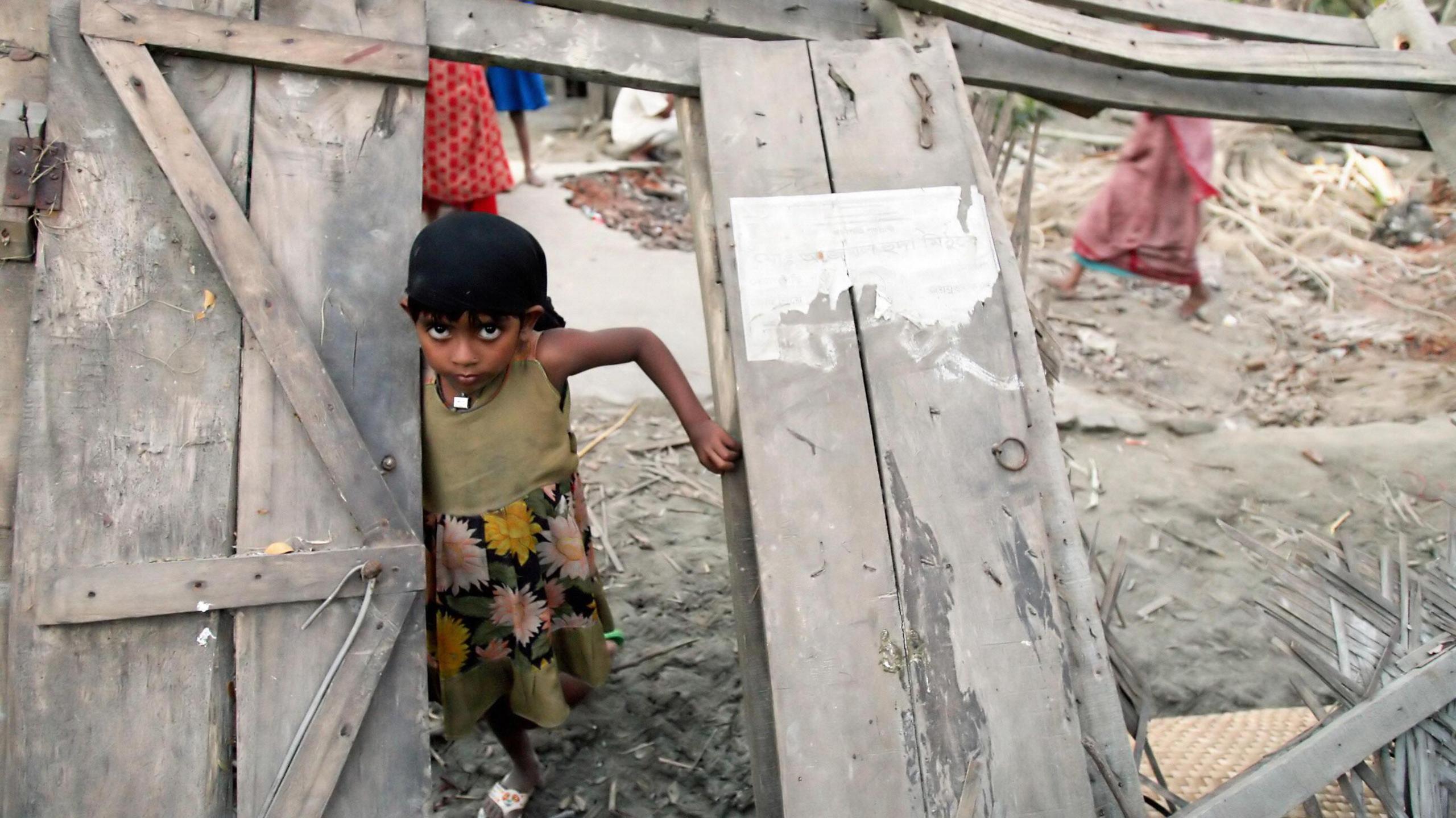
Climate change is a critical issue for Bangladesh
A key question this year is money.
Under the Paris agreement signed in 2015, world leaders pledged to try to prevent global temperatures rising by more than 1.5C. For that to happen countries need to ramp up their efforts to cut warming gases.
As part of the agreement, countries committed to develop a new cash target for developing nations by 2025. This money would be used to help emerging economies cut their carbon and adapt to the worst impacts of rising temperatures.
Getting agreement on a new finance target is seen as a critical step in building trust between rich and poor nations as, so far, the track record hasn’t been great.
African countries and small island states want to see climate finance in total reach over a $1tn a year by 2030.
Up to now countries like China and the Gulf States have been classified as developing economies and been exempt from contributing.
According to the EU and other wealthy countries, that must change if the overall amount of cash is to be increased.
Will rich countries pay for climate change?
- Published10 November 2024
Governments’ plans for tackling climate change in their own countries could also be a tricky issue. They must update their action plans every five years, with the next deadline falling in February 2025.
Some countries will release their strategies at this COP, but if they’re weak and look unlikely to stop global warming rising beyond 1.5C, it could cause problems with countries on the front lines of climate change.
It is also not clear whether the fossil fuel agreements passed at the last climate talks are still in place. There were signs at the G20 talks earlier in 2024 that some countries wanted to roll back on promises to move away from burning oil, coal and gas.
Major UN talks on protecting nature also collapsed in Colombia in October, after nations failed to agree key goals.
Why is holding COP29 in Azerbaijan controversial?
Azerbaijan has big plans to expand gas production, by up to a third, over the next decade. Some observers worry that a country with that goal is in charge of a conference that aims to transition away from fossil fuels.
These fuels are one of the main causes of climate change because they release planet-warming greenhouse gases like carbon dioxide when burned for energy.
There are also concerns, reported by the BBC, that Azerbaijani officials are using the climate conference to boost investment in the country’s national oil and gas company.
Azerbaijan's President Ilham Aliyev told the conference that oil and gas are “a gift of god”, and that countries should not be blamed for having them, or selling them on the international market.
Shortly afterwards, Mr Guterres told the conference that doubling down on the use of fossil fuels was "absurd".
There are also deep reservations about holding the meeting in a country with a poor human rights record, where political opposition isn’t tolerated.
How will Donald Trump's election affect COP29?
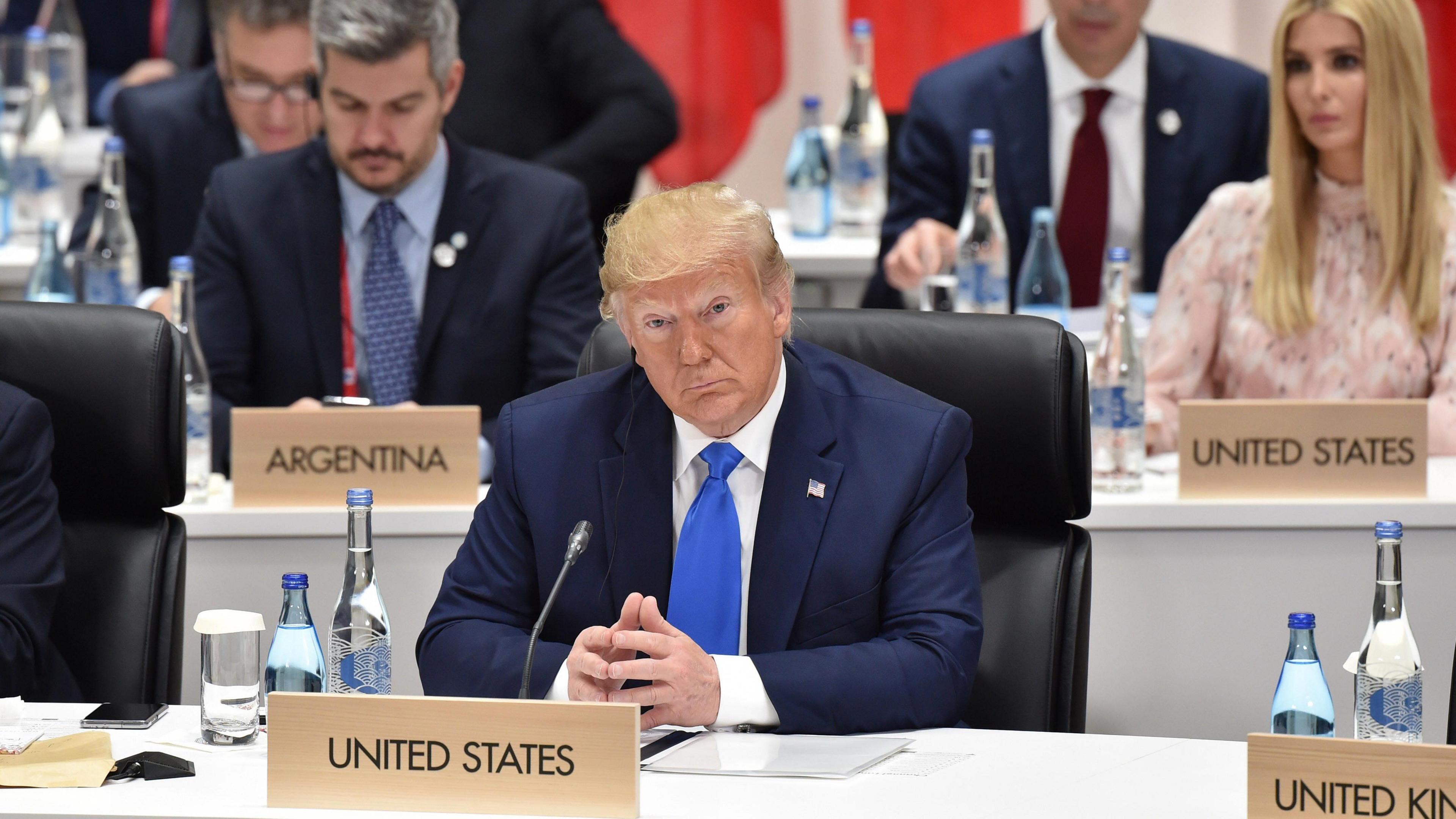
Donald Trump attends the 2019 G20 summit in Osaka, Japan, during his first presidency
The US president-elect is a known climate sceptic who has called efforts to boost green energy a "scam", and his victory has been seen by climate experts as a major setback.
He won’t actually be at COP29, and the team representing President Biden will push for progress, but they know that anything agreed will not bind the new administration.
With Trump's election the US is expected to withdraw from the Paris agreement, and from providing finance.
However it’s also possible that Trump’s re-election might drive a new sense of unity among other leaders, even building a coalition who might agree a major step on money for poorer countries.
Experts argue that the climate crisis - and the world's collective response to it - will outlast a second Trump term.
How has the climate change affected the weather in 2024?
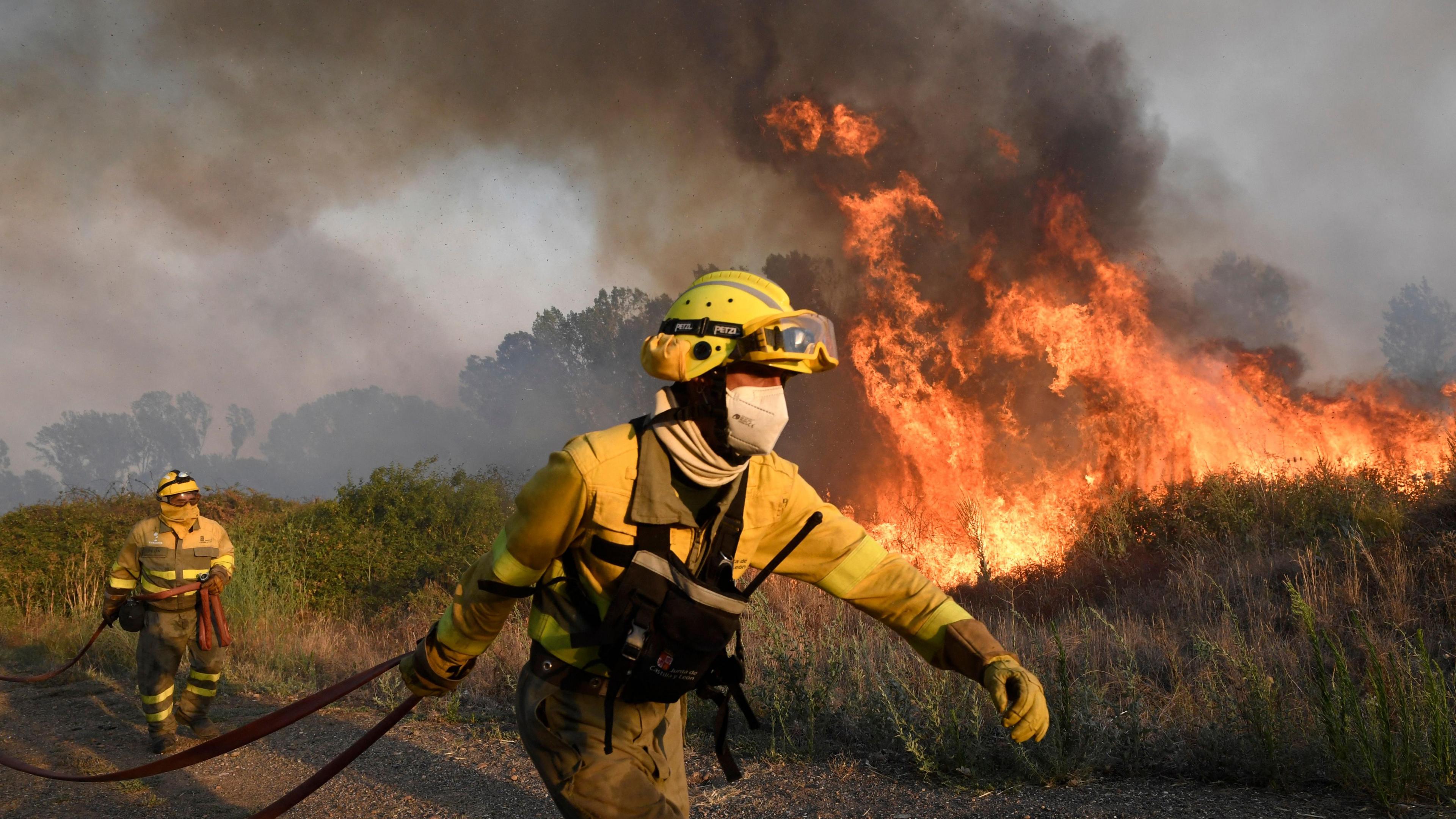
Firefighters battle flames as they work to contain a wildfire near a village in northern Spain
The warning alarms from the climate could not be stronger.
It is now "virtually certain" that 2024 - a year punctuated by intense heatwaves and deadly storms - will be the world's warmest on record, according to projections by the European climate service.
The impacts of warmer oceans have been seen with very powerful hurricanes Helene and Milton slamming into the US in the summer.
The devastating flooding that killed at least 200 people in Spain in October was also fuelled by higher sea temperatures in the Mediterranean.
“Climate change is a cumulative problem. That means that with every year of delay, there is additional warming that we commit our planet to. Now is the time that we need to take action,” explains Prof Joeri Rogelj at Imperial College London.
How could the COP29 talks impact me?
In the short-term, agreements at COP can change how nations build their economies, for example by pushing the development of green power. That can affect where we get our energy from and how much we pay for it in our bills.
It can also commit countries to paying large sums of money into funds for poorer countries. In the UK this currently comes from aid budgets paid for by taxpayers, although private financial institutions are expected to contribute significantly.
In the long-term, the talks aim to build a safer, cleaner world for everyone and prevent the worst of climate change.

Sign up for our Future Earth newsletter to get exclusive insight on the latest climate and environment news from the BBC's Climate Editor Justin Rowlatt, delivered to your inbox every week.
Outside the UK? Sign up to our international newsletter here.